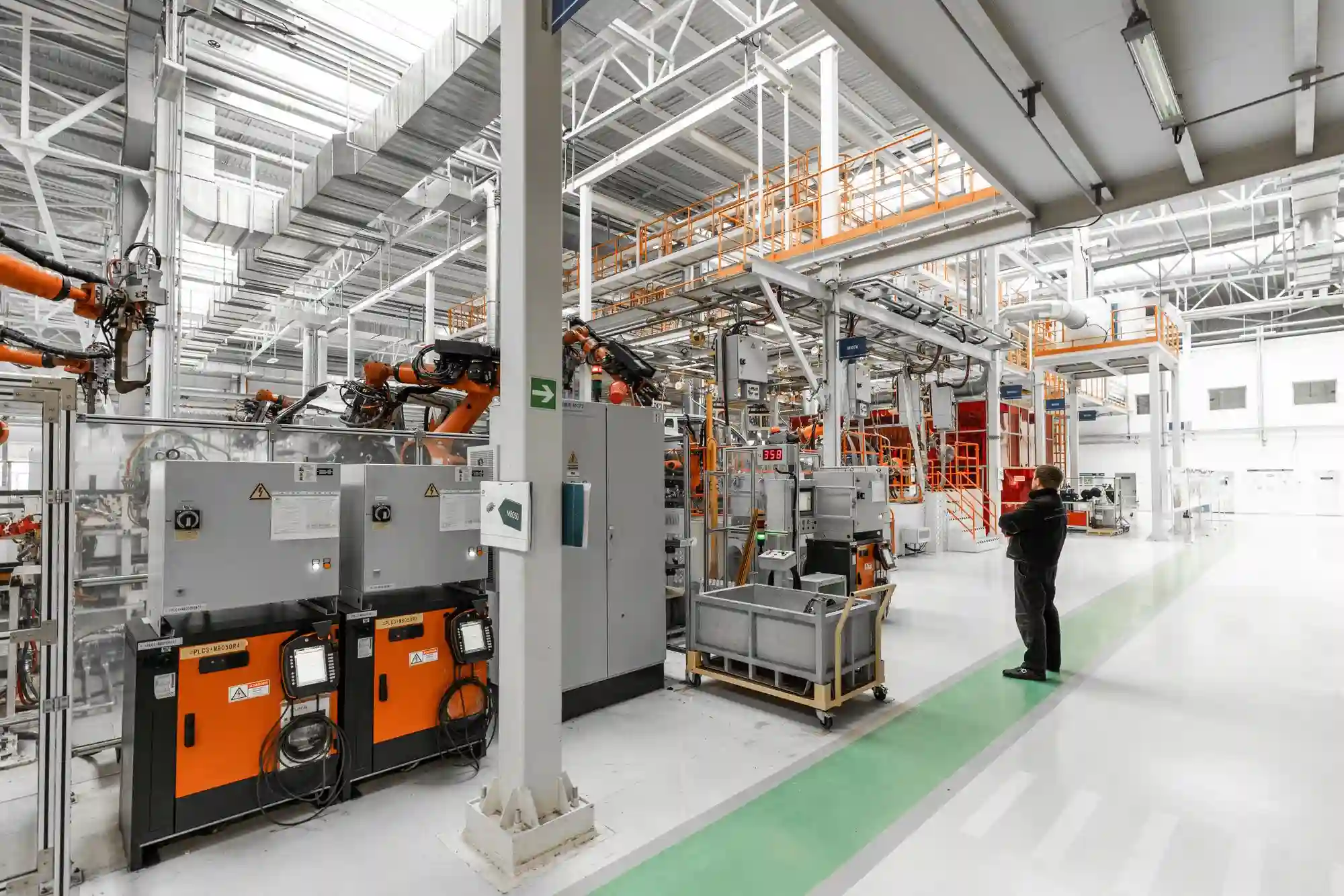
The future of manufacturing is likely to involve a greater use of automation and technology, such as robotics, 3D printing, and the Internet of Things (IoT). This will lead to increased efficiency and productivity, as well as the ability to produce customised products on a larger scale. Automation is transforming the manufacturing industry by increasing efficiency and productivity, reducing costs, and improving the overall quality of products. With the advent of advanced technologies such as robotics (Robotic Automation in Chennai), artificial intelligence, and the Internet of Things (IoT), manufacturers are able to automate many tasks that were once performed by humans, such as assembly, inspection, and even some design and engineering tasks.
One of the key trends in Top SPM Manufacturing & Manufacturing automation companies in Chennai is the use of Industry 4.0 technologies, which allow for greater connectivity and communication between machines, systems, and people. This enables real-time monitoring and control of the manufacturing process, which can help to improve the overall efficiency and productivity of the operation.
Another trend is the increasing use of autonomous robots , which are able to perform tasks with little or no human supervision. These robots are able to work alongside human workers, or in some cases, replace them entirely. Robotics and automation also contribute in areas of logistics and material handling to make the whole process more efficient and streamlined.
Additionally, automation also allows for greater customization and flexibility in manufacturing, which enables manufacturers to quickly adapt to changing market conditions and customer demands.
Overall, Master Linque automation is expected to continue to play a major role in shaping the future of the manufacturing industry, and will likely lead to significant improvements in productivity, efficiency, and quality.
How Master Linque Automation is Changing the Industry
Automation is set to revolutionise the future in six key industries
- Automotive Industry
- Electronic Industry
- Electrical industry
- FMCG industry
- Medical industry
- Aerospace industry
The above six industries are going to change this environment to get full automation for on-demand services. → Here Master Linque Automation explains the six best industry which is difficult to handle without Automation
Automotive Industry
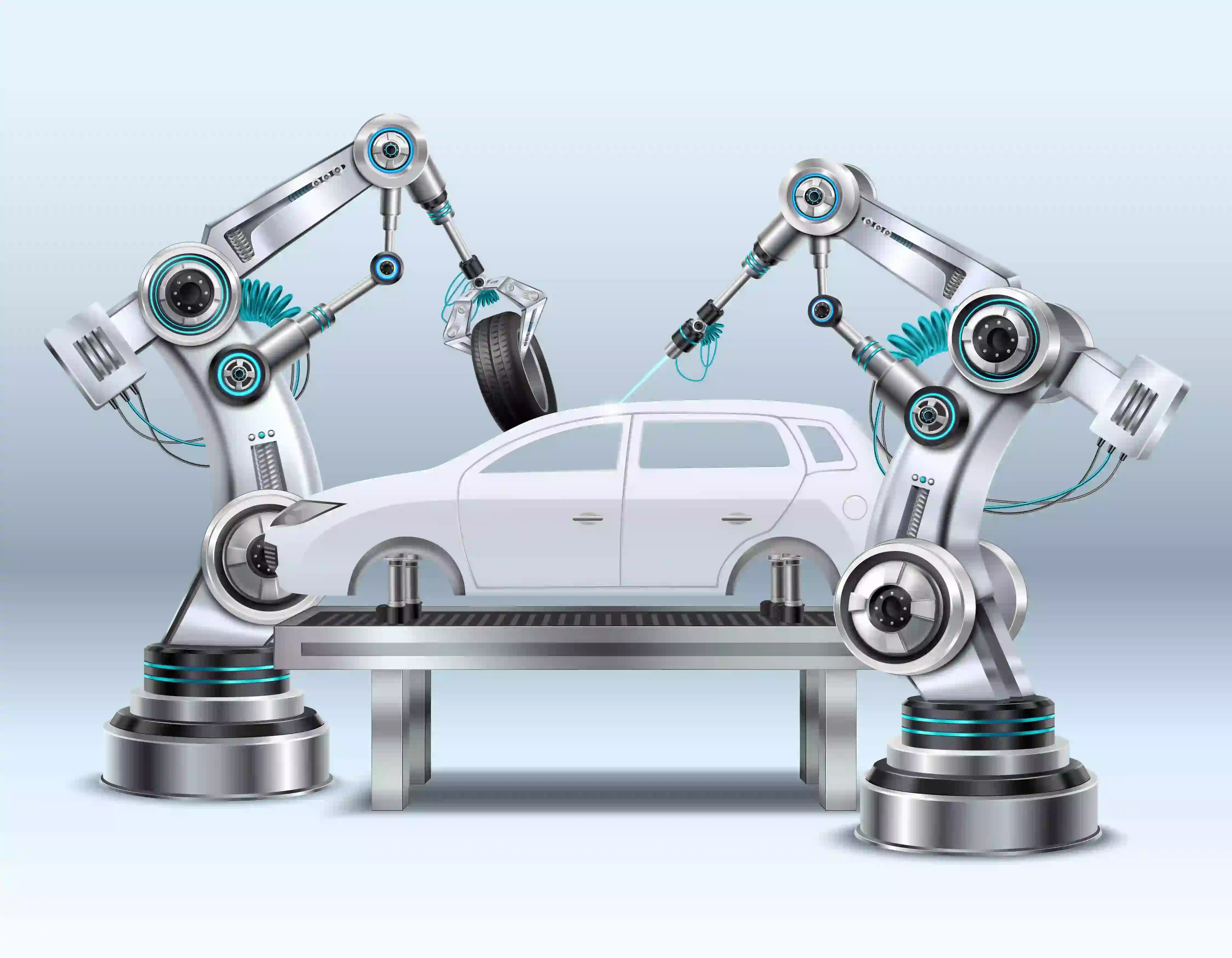
When it comes to Special purpose machine manufacturing, Best Automated Manufacturing company in chennai, the automotive industry has been one of the biggest investors. The continual adoption of industrial robots has led to further development of robotic applications. As a result of automated robots, the automotive industry has gained a variety of advantages.
Automation has replaced most repetitive, monotonous, and high-risk processes. Artificial intelligence (AI), machine learning, and robotic independence have transformed the industry in significant ways. The latest automotive robots feature some of the most advanced automation and robotic technology available, which stands out due to their superior level of connectivity. As a result of automotive robots, significant amounts of production data can be collected, sorted, and analysed in order to optimise production and reduce downtime. In addition, the technology is extremely versatile and adaptable.
Advantages for automotive industry:
There are several advantages for the automotive industry when it comes to using advanced technology such as artificial intelligence (AI), machine learning (ML), and data analytics:
Improved efficiency: AI-powered systems can analyse data and make decisions quickly, helping to streamline manufacturing processes and reduce downtime.
Enhanced safety: AI-powered driver assistance systems can help prevent accidents by detecting potential hazards and alerting drivers.
Personalised experiences: Machine learning algorithms can be used to personalise the driving experience for individual users, such as adjusting the seats, climate control, and entertainment systems based on their preferences.
Predictive maintenance: AI and data analytics can be used to predict when a vehicle will need maintenance or repairs, allowing for proactive and preventative maintenance.
Autonomous driving: AI-powered autonomous vehicles have the potential to greatly reduce accidents and traffic congestion, as well as increase mobility for people who are unable to drive.
Electronic industry
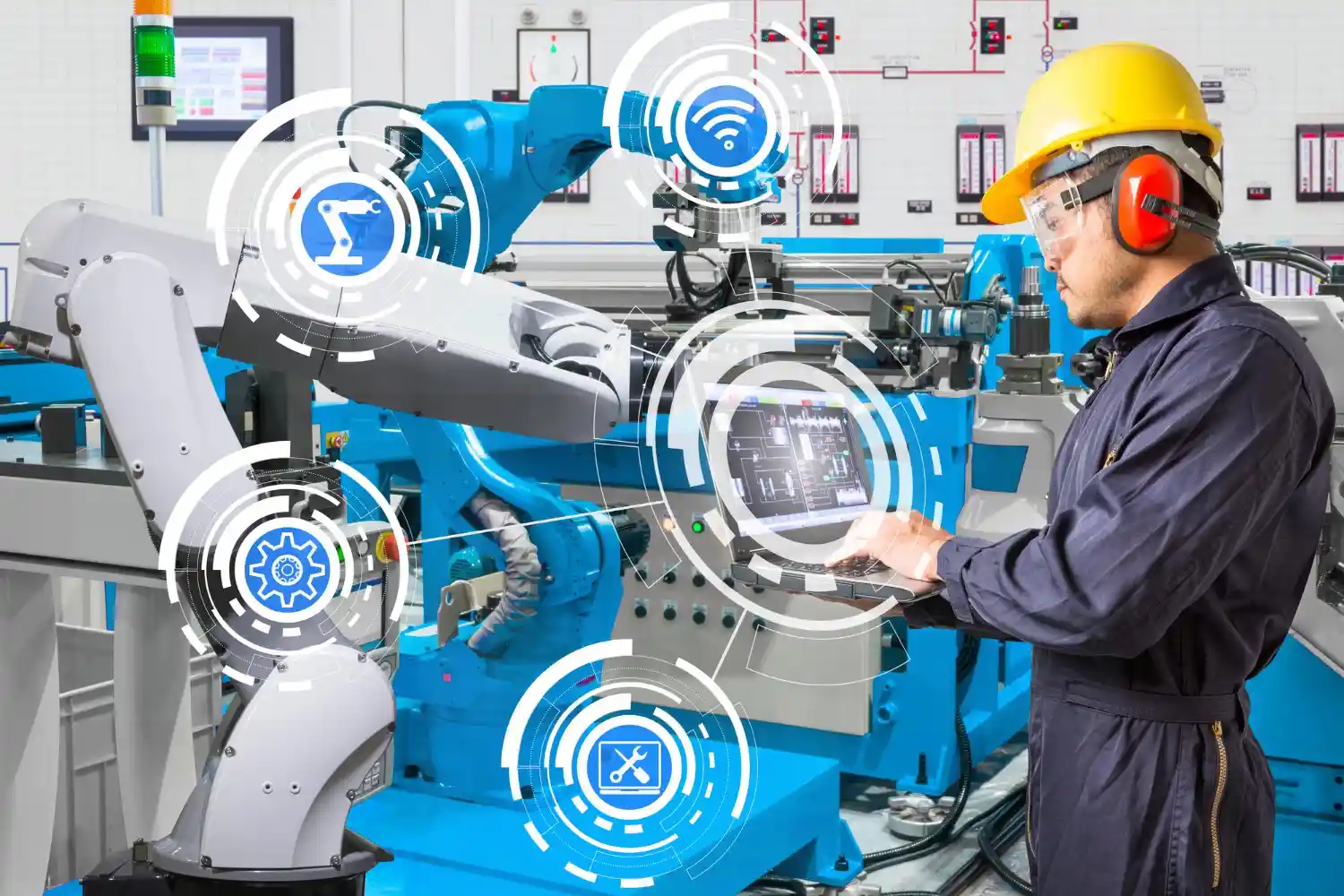
Automation in the electronic industry refers to the use of advanced technology and robotics to automate various tasks and processes in the production of electronic devices and components. This includes assembly line automation, machine learning and computer vision for quality control, and the use of robots for tasks such as welding and soldering. Automation can increase efficiency and reduce costs, but it can also lead to job losses in the industry. But it was the most automated way to work 24/7 hours without hesitation! Searching for the Best Automated Manufacturing company in chennai→ Here Master Linque Automation is the Top Manufacturing automation company in Chennai, Hosur, Bangalore, coimbatore, Trichy.
Advantages of automation in electronics industry:
Increased efficiency and productivity: Automation can help electronic manufacturers speed up production processes, reduce errors, and increase output.
Reduced labour costs: Automation can help electronic manufacturers reduce their labour costs by eliminating the need for manual labour.
Improved product quality: Automated electronic manufacturing processes can help ensure consistent product quality and reduce the risk of defects.
Increased flexibility: Automation can help electronic manufacturers quickly and easily adapt to changes in demand or product design.
Improved safety: Automated electronic manufacturing processes can help reduce the risk of workplace accidents and injuries.
Increased accuracy: Automation can help electronic manufacturers achieve greater precision and accuracy in their manufacturing processes, resulting in fewer defects and higher-quality products.
24/7 production: Automation can help electronic manufacturers operate their production lines 24/7, without the need for human intervention.
Improved traceability: Automation allows for better control and monitoring of production processes and materials, enabling enhanced traceability of products throughout the supply chain.
Reduced environmental impact: Automation can help reduce energy consumption, waste and pollution in electronic manufacturing.
Electrical industry
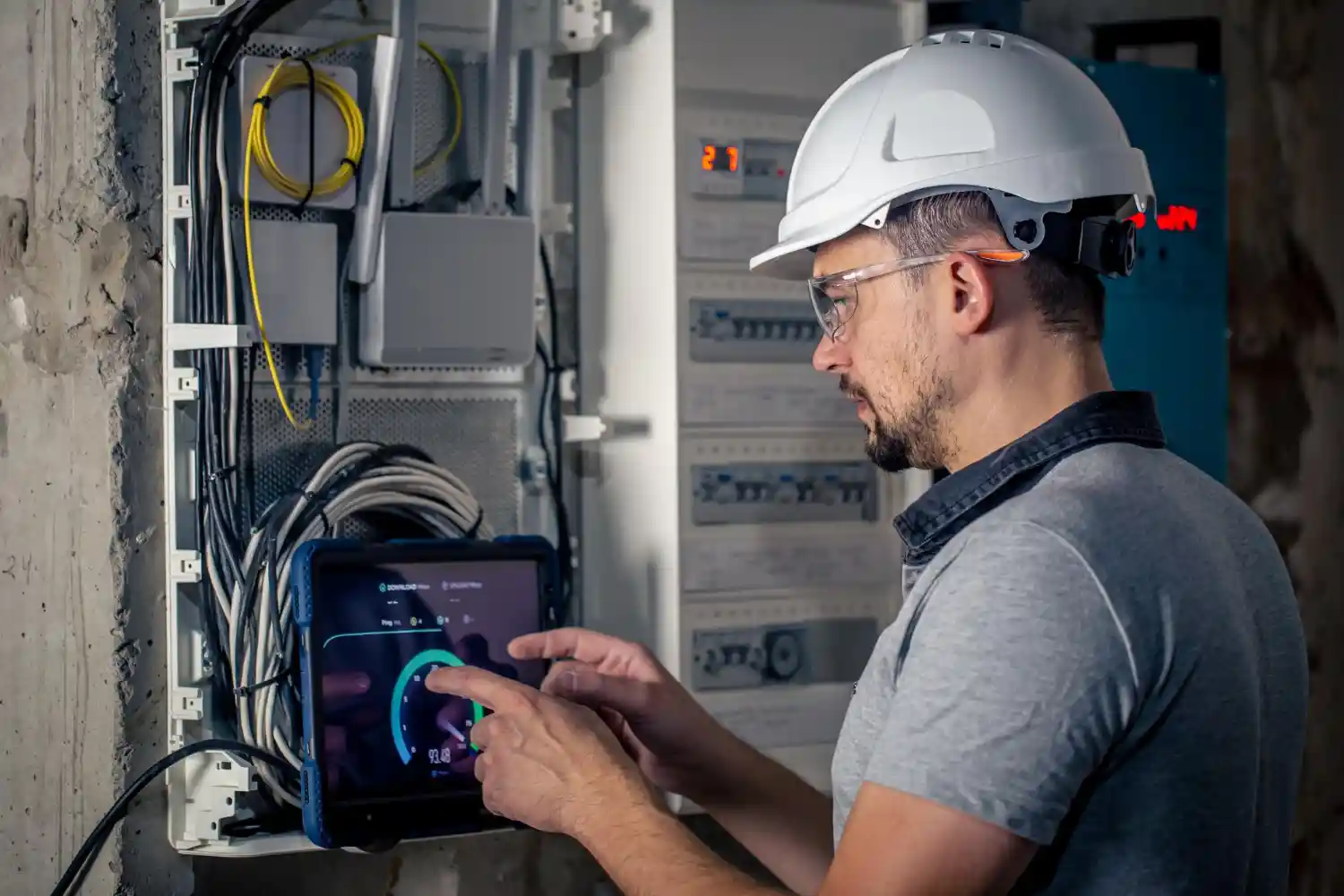
It's a new discipline in the field of electrical information, but because it is closely related to people's daily life and industrial production, it develops very rapidly and is relatively mature now. It has become an important part of the high-tech industry, widely used in industry, agriculture, national defence and other fields, and is playing an increasingly important role in the national economy. Its tentacles extend to all walks of life, ranging from the design of a switch to the research of aerospace vehicles. Students in this major can engage in work in the fields of system operation, automatic control, power electronics technology, information processing, test technology, research and development, economic management, and electronic and computer technology applications related to electrical engineering. Engineering and technical personnel. There is a great demand for high-level talents in this field. It is estimated that with the entry of large foreign companies, there will be a big gap in this professional field, and it is very likely that the supply of talents will exceed the demand. Now we have the Special purpose machine manufacturing, Best Automated Manufacturing company in Chennai, Hosur, Bangalore, Coimbatore, Trichy. We don't go for foreign companies to get automated service in your industry!
Advantages of automation in electrical industry:
Increased Efficiency: Automation can increase the speed and accuracy of production processes, leading to higher output and fewer errors.
Cost Savings: Automation can reduce labour costs and increase efficiency, leading to significant cost savings for companies.
Improved Quality: Automated systems can reduce human error and improve consistency in the production process, resulting in higher-quality products.
Increased Safety: Automation can reduce the need for human intervention in dangerous or hazardous environments, increasing safety for workers.
24/7 Operation: Now the Manufacturing automation company in Chennai is operating the automated system continuously, allowing for production to take place around the clock without the need for human supervision.
Greater Flexibility: Automation allows for easy changes in production processes and the ability to adapt to new products or market demands.
Predictive Maintenance: Automation can help in monitoring the machines and predict when they will require maintenance, thus reducing downtime and increasing the lifespan of the machines.
FMCG industry

Automated fast moving consumer goods (FMCG) service refers to the use of technology to automate the process of ordering, delivering and restocking consumer goods. This can include using vending machines, automated kiosks, and online ordering platforms to make it easy for customers to purchase FMCG products. Automation can also be used in the warehouse and delivery process, such as the use of robotic systems to pick and pack orders, and drones to deliver products. Special purpose machine manufacturing,
FMCG Manufacturing automation company in Chennai providing the service can help to improve efficiency, increase convenience for customers, and reduce costs for businesses.
Advantages of Automation in Electrical Industry:
Greater sales operation and customer satisfaction: It increases sales, but a great sales strategy can also improve customer satisfaction. It’s a two way street. In order for the above to hold true, you need to truly know your customers. When you really understand who your target market is, you are better able to cater to their needs and wants.
Upgraded customer relationship management: Upgraded CRM systems can also provide businesses with a more complete and accurate view of customer interactions and behaviour, allowing them to make more informed decisions and improve overall customer satisfaction.
Allows Sales Team to Track Stock at Multiple Levels: An upgraded customer relationship management (CRM) system can allow a sales team to track stock at multiple levels through automation. This can include real-time tracking of inventory levels, automatic reordering when stock reaches a certain threshold, and notifications of low stock levels. This allows sales teams to spend more time selling than tracking or managing inventory, resulting in greater efficiency and effectiveness.
Easy Distribution and On-Time Delivery: Easy distribution and on-time delivery refer to the efficient and timely movement of goods from the point of origin to the point of consumption. This can include everything from the planning and coordination of transportation routes, to the actual physical movement of the goods, to the tracking and delivery of the goods to the end customer. Ensuring easy distribution and on-time delivery is important for businesses as it can lead to increased customer satisfaction, improved supply chain efficiency, and ultimately, increased profits.
Better Sales Strategy for Business:
Identifying and targeting specific industries or market segments that have a high demand for automation solutions. Offering customised solutions that meet the specific needs of individual clients. Building and maintaining strong relationships with key decision makers and influencers in target industries. Leveraging technology, such as automation tools and data analysis, to improve sales processes and identify new opportunities.
Overall Insight Planning and Execution: Identifying automation opportunities: This can involve analysing business processes and identifying areas where automation can improve efficiency, reduce costs, or increase productivity. Developing a plan can involve creating a detailed plan for implementing automation, including timelines, budgets, and resources required.
Medical Industry
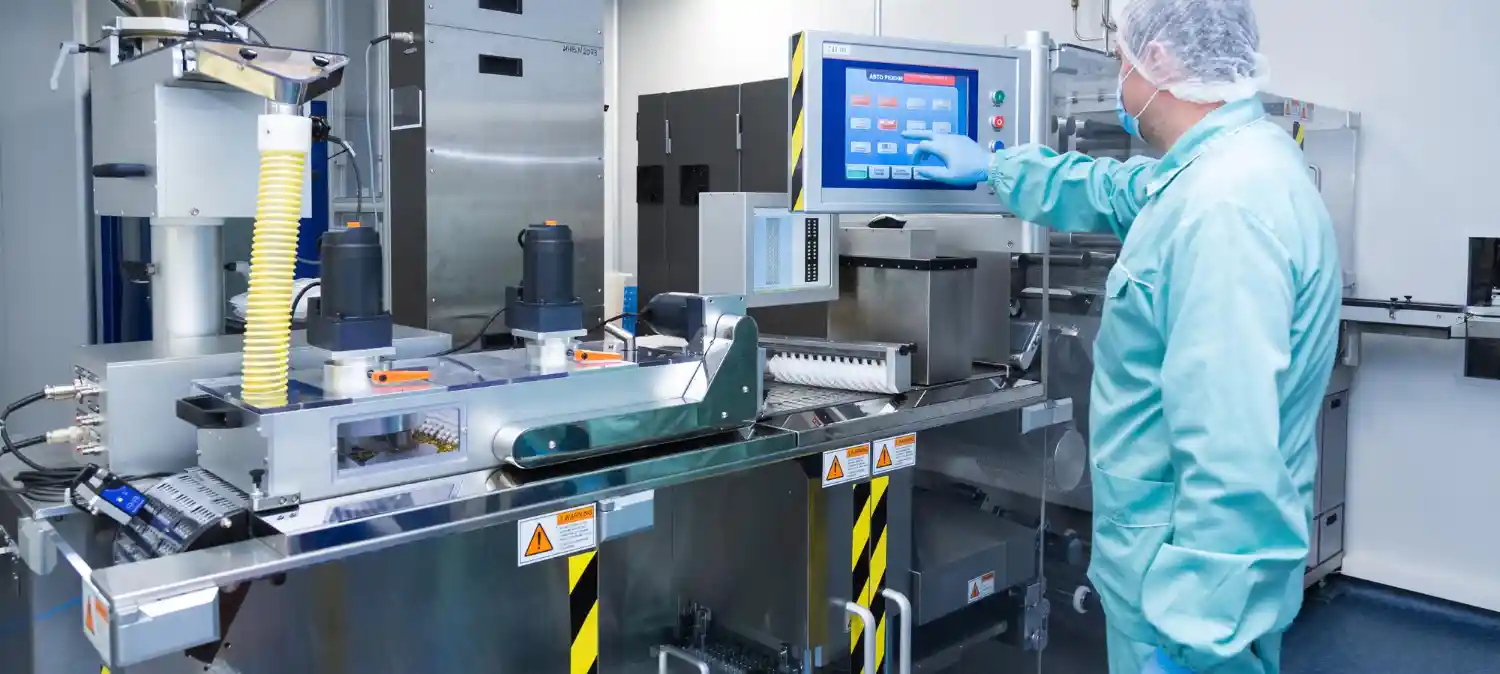
Top Manufacturing automation, SPM Manufacturing company in Chennai are increasingly incorporating automation into various services, such as medical imaging, drug discovery, and telemedicine. Automation can help improve efficiency, accuracy, and accessibility of medical services. For example, using machine learning algorithms to analyse medical (Robotic Automation in Chennai) Images can help radiologists make more accurate diagnoses, while telemedicine can make medical consultations more convenient for patients in remote or underserved areas. However, it's also important to consider the potential ethical and safety implications of these technologies, as well as the need for appropriate regulations and oversight.
Advantages of Automation in Medical Industry:
Automation service in the medical industry can help to improve efficiency, reduce costs, and improve the quality of patient care. Some examples of automation services that can be used in the medical industry include:
Electronic health records (EHRs): Automated systems for storing and sharing patient health information, which can improve communication between healthcare providers and reduce the risk of errors.
Robotic surgery: Automated systems that can assist with surgical procedures, which can improve precision and reduce recovery times for patients.
Remote patient monitoring: Automated systems that allow healthcare providers to monitor patients remotely, which can improve access to care for patients in remote or underserved areas.
Laboratory automation: Automated systems that can assist with tasks such as testing and analysing samples, which can improve accuracy and reduce turnaround times for results.
Inventory management system: Automated system that can help medical facilities to manage and track their inventory, this will optimise the use of resources and reduce unnecessary costs.
Overall, automation services in the medical industry can help to improve patient outcomes, increase efficiency and reduce costs, making healthcare more accessible and affordable for everyone.
Aerospace Industry:
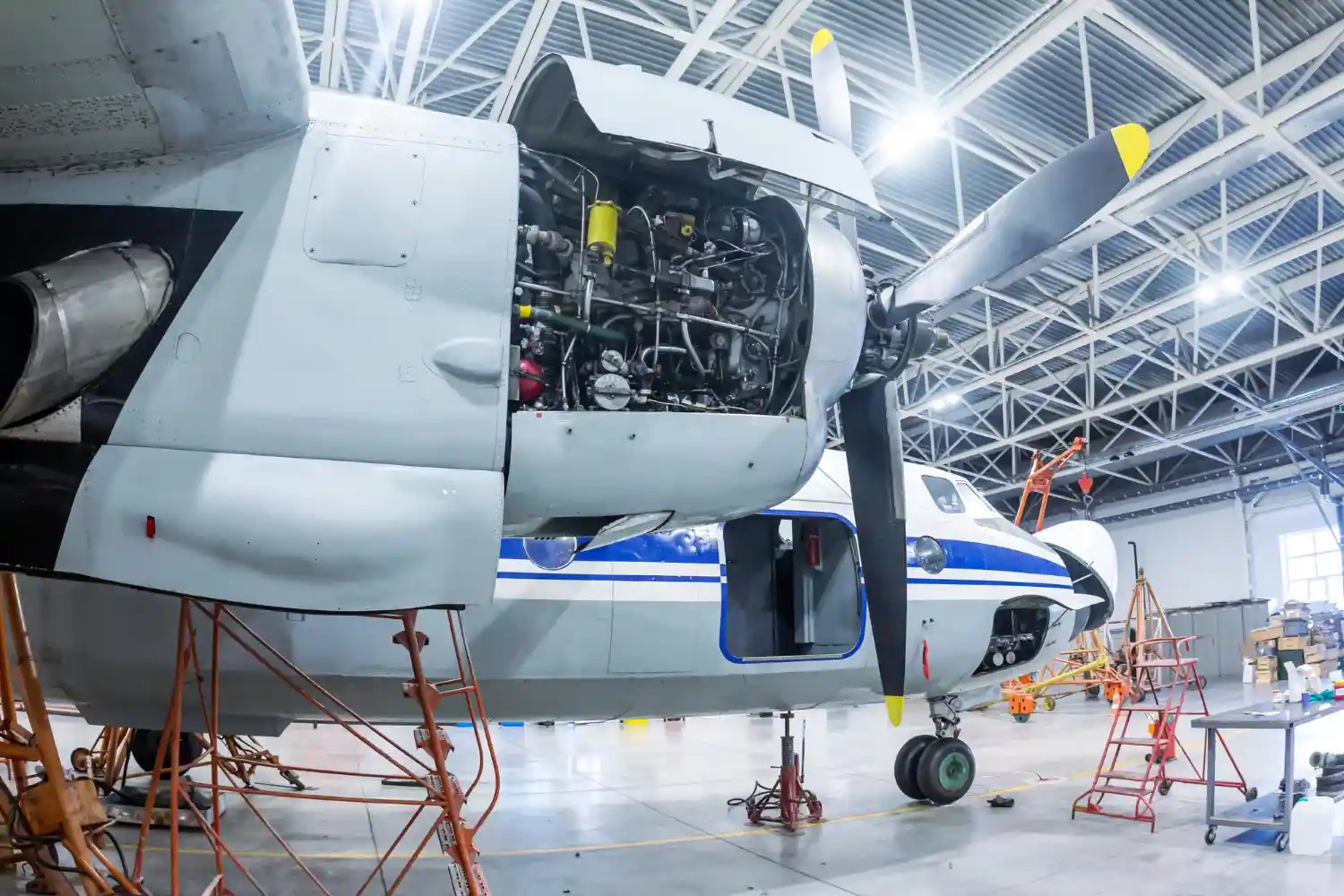
The aerospace industry is increasingly using automation and artificial intelligence in various services such as aircraft design and manufacturing, flight control and navigation, and maintenance and repair. For example, using automated systems for repetitive tasks can improve efficiency and reduce the potential for human error. Additionally, AI-assisted systems can assist pilots in making decisions, such as in flight planning and navigation. In maintenance and repair, automated systems can help with identifying and diagnosing problems, as well as with scheduling and tracking maintenance. Overall, automation and AI are expected to play an increasingly important role in the aerospace industry in the future.
Advantages of Automation in Aerospace Industry:
Automation services in the aerospace industry can help to improve efficiency, reduce costs, and enhance the quality of products and services. Some examples of automation services that can be used in the aerospace industry include:
Manufacturing automation: Automated systems that can assist with tasks such as assembly, welding, and painting, which can improve efficiency and reduce production costs.
Inspection and Quality control automation: Automated systems that can perform inspections and quality control checks on aerospace components, which can improve accuracy and reduce the risk of errors.
Supply Chain automation: Automated systems that can help with logistics, inventory management, and transportation, which can improve efficiency and reduce costs.
Design and simulation automation: Automated systems that can assist with tasks such as design, engineering, and simulation, which can improve the speed and accuracy of product development.
Flight control automation: Automated systems that can assist with tasks such as navigation, flight planning and monitoring, which can improve safety and reduce the workload on pilots.
Conclusion
Overall, automation services(Special purpose machine manufacturing in Chennai) in the aerospace industry can help to improve the quality of products and services, increase efficiency, and reduce costs, making aerospace more accessible and affordable for everyone.
“The future of manufacturing is about creating a digital twin of the entire product lifecycle from design, production, through to usage and end of life.”- Dr. John Bryson. Want to learn more about automation plans and services? Check out our blog posts now!!



